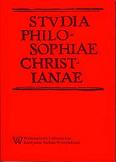Znaczenie językowe i kontekst z perspektywy kontekstualizmu i minimalizmu semantycznego
Linguistic meaning and context from the perspective of contextualism and semantic minimalism
Author(s): Janina BuczkowskaSubject(s): Philosophy, Philosophy of Language
Published by: Wydawnictwo Naukowe Uniwersytetu Kardynała Stefana Wyszyńskiego w Warszawie
Keywords: contextualism; semantic minimalism; pragmatic content; semantic content; minimal proposition; context sensitivity
Summary/Abstract: This article refers to one of the most intense debates in contemporary philosophy of language, namely the dispute over the scope and nature of context sensitivity of linguistic meaning. In fact, this is a dispute about the autonomy of semantics The two opposing positions in this debate are contextualism and semantic minimalism. The proposed approach recognizes speech acts as intentional and rational acts of communication in which the linguistic expression and context are both distinct as separate different sources of information that finally define a content of utterance. This attitude makes it possible to identify more precisely the role of linguistic meaning on the one hand and the influence of context on the other hand in pragmatic interpretation of utterance. From this perspective, the utterance of the sentence John is tall was analyzed in three different contexts of usage to examine the main theses of the positions in question. Considerations were made as an attempt to defend the semantic minimalism, which claims that the only context sensitive expressions are the completely obvious ones such as “I,” “here,” “now,” “that.” The context influence on the expressions outside this group is limited to a pragmatic level. Pragmatic processes do not modulate the semantic content of expressions but contribute to the interpretation of the expression. Linguistic sentences, after fixing the semantic value of these obviously context sensitive expressions, express propositions (minimal propositions) without additional contextual information. It definitely rejects the contextualist position that that almost all expressions are context sensitive and that the pragmatics changes semantic content in a substantial way. It argued against the contextualist claims that sentences such as John is tall have no propositional content – only utterances can have propositional (truth-conditional) content. The analysis of the sentence in question used in different contexts provides arguments in favor of semantic minimalism. They show that both the word tall itself has some content common to all contexts and references, as well as the sentence, John is tall formulates a (minimal) proposition with truth-conditional content.
Journal: Studia Philosophiae Christianae
- Issue Year: 52/2016
- Issue No: 2
- Page Range: 5-34
- Page Count: 30
- Language: Polish

